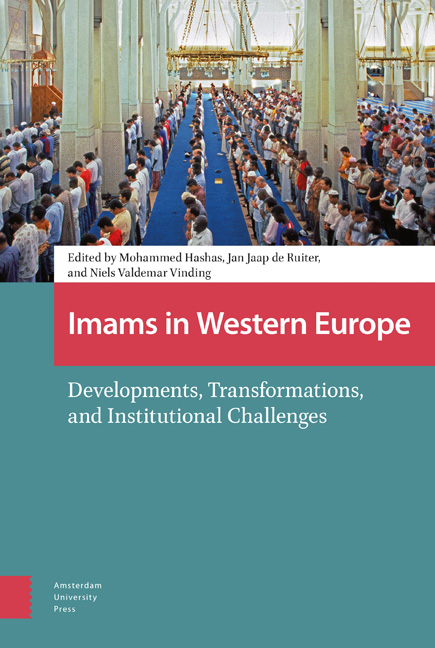19 - In and Around the Mosque: Profile and Territory of the Italian Imam
Published online by Cambridge University Press: 06 January 2021
Summary
Abstract
This chapter presents an assessment of the main trends directing the evolution of an understanding of imams in Europe, with a particular focus on the sociocultural profile of those who assume this role in Italy. The number of profiles of imams studied in this research project was one hundred from all over the country. The chapter also offers some updated figures based on the results of another research project, originally conducted between 2011 and 2013, on places of Muslim worship in the country.
Keywords: European imams, Italian imamate, Imams and mosques in Italy, institutionalization of Islam
The European imam: Current status
Social science researchers have been using different approaches to elaborate a typological framework of Muslim leadership in Europe. Within this broader picture, they also have sought to identify the core features of an imam. Brigitte Maréchal (2003) has written a pivotal review of the research on Muslim leadership in Europe in which she identifies some fundamental issues: the autonomy, even within constraints, of the majority of mosques and their leaders; the recruitment and education levels of imams; the consequences of some countries’ initiatives to organize worship opportunities for their compatriots; and finally the relationship between imams and European countries, which are sometimes keen to formalize their religious and community role, but are also afraid of the possibility of links between mosques and radical groups.
The studies by Wasif Shadid and Sjoerd van Koningsveld (1999, 2002) and Nico Landman (1992) describe imams’ religious authority and role in the Dutch context, which Welmoet Boender and Meryem Kanmaz (2002) compare with that of Belgium. Some link the imams in each European country to a specific religious doctrine and ethnic background. Thus Philip Lewis (2004) considers imams in Great Britain in relation to the Deobandi tradition, while Sabine Kroissenbrunner (2002) analyses the role of Turkish imams in Vienna. Ural Manço (1997) touches upon Turkey's political outlook towards Europe, and Landman (1997) on the politics of the Turkish Directorate of Religious Affairs (Diyanet). Turkish imams have been an important part of the subject of many studies, such as the work of Kadir Canatan (2001) in the Netherlands and that of Gerdien Jonker (2002) in Germany.
- Type
- Chapter
- Information
- Imams in Western EuropeDevelopments, Transformations, and Institutional Challenges, pp. 381 - 398Publisher: Amsterdam University PressPrint publication year: 2018



